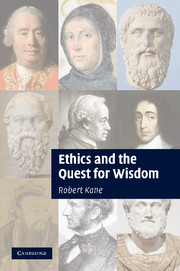Book contents
- Frontmatter
- Contents
- Acknowledgements
- 1 Introduction: pluralism and uncertainty
- 2 Openness
- 3 The retreat
- 4 The moral sphere
- 5 Fact and value
- 6 Value experiments
- 7 Virtues, excellences and forms of life
- 8 The fourth dimension
- 9 Aspiration
- 10 Wisdom
- 11 Objective worth
- 12 The Bach crystals
- 13 Human flourishing
- 14 The Faust legend and the mosaic
- 15 The good and the right (I): intuitionism, Kantianism
- 16 The good and the right (II): utilitarianism, consequentialism
- 17 The good and the right (III): contractualism
- 18 Politics, public morality and law: justice, care and virtue
- References
- Index
1 - Introduction: pluralism and uncertainty
Published online by Cambridge University Press: 07 September 2010
- Frontmatter
- Contents
- Acknowledgements
- 1 Introduction: pluralism and uncertainty
- 2 Openness
- 3 The retreat
- 4 The moral sphere
- 5 Fact and value
- 6 Value experiments
- 7 Virtues, excellences and forms of life
- 8 The fourth dimension
- 9 Aspiration
- 10 Wisdom
- 11 Objective worth
- 12 The Bach crystals
- 13 Human flourishing
- 14 The Faust legend and the mosaic
- 15 The good and the right (I): intuitionism, Kantianism
- 16 The good and the right (II): utilitarianism, consequentialism
- 17 The good and the right (III): contractualism
- 18 Politics, public morality and law: justice, care and virtue
- References
- Index
Summary
ANCIENT WISDOM, MODERN CHALLENGES
For most ancient and medieval thinkers of the Western tradition, theoretical and practical inquiry, fact and value, scientific explanation and purpose, merged in an overall quest for wisdom. Knowledge of facts about the natural world and human beings would tell us what was good and valuable. Theoretical inquiry into the nature of things (theoria) would answer practical questions about how to live (praxis); and explanations of why things behaved as they do, including humans, would tell us what ends or purposes they should pursue. We know how this worked for the great ancient thinkers. Aristotle held that among the archai or explaining causes of all things were final causes or ends that tell us what was worth striving for, for each thing. And for Plato, the intelligible world included not only mathematical forms that inform us about the structure of the natural world, but also ideal forms, such as Justice and Beauty, that tell us what to strive for. As a consequence, for these ancient thinkers, theory and practice, fact and value, explanation and purpose, were inextricably linked.
The modern age, by contrast, is characterized by what Hegel called “sunderings” (Entzweiungen) of these and many other contrasts. There has been a tendency in the modern era to pry apart considerations of (1) fact from value, (2) theoretical inquiry from practical inquiry (about the good) and (3) scientific explanation from purpose, with the consequence that the unified quest for wisdom of the ancient philosophers was threatened as well.
- Type
- Chapter
- Information
- Ethics and the Quest for Wisdom , pp. 1 - 13Publisher: Cambridge University PressPrint publication year: 2010



